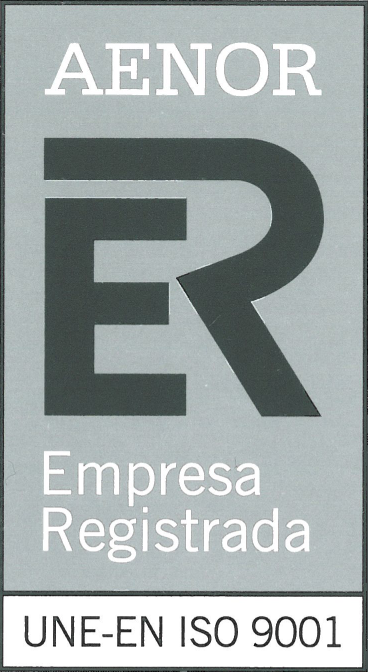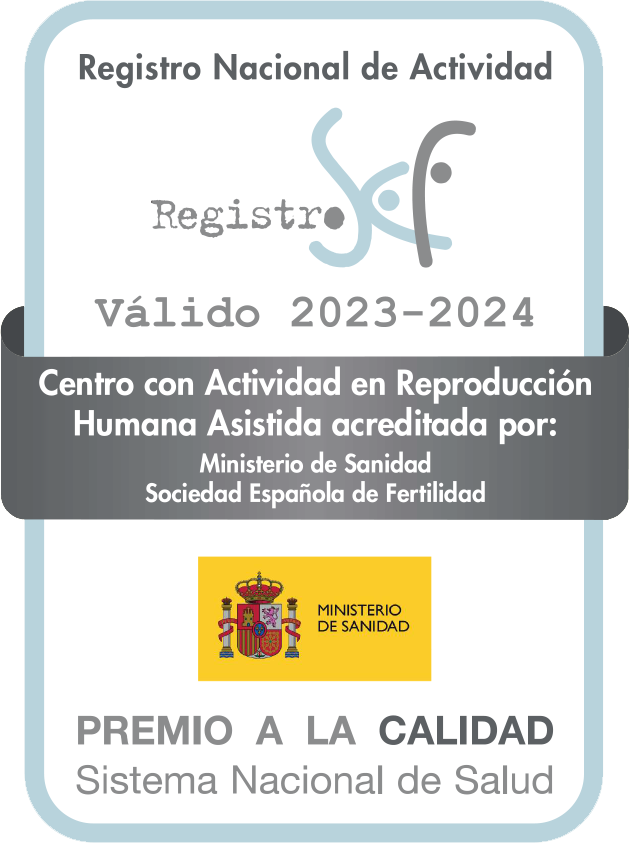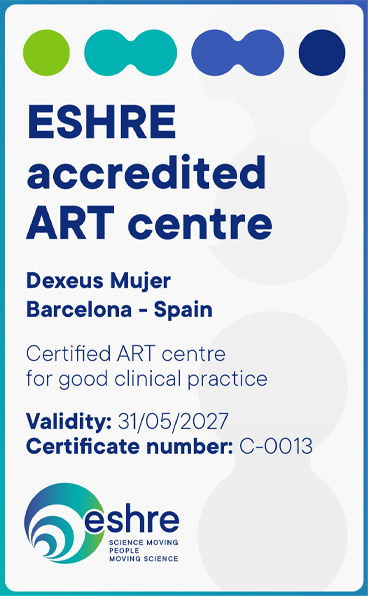Artificial insemination
What is artificial insemination
Artificial insemination is an assisted reproduction technique whereby contact between the egg and sperm is facilitated by depositing the semen in the woman’s uterus.
There are two kinds of artificial insemination:
- Conjugal AI, using your partner’s sperm, and
- Donor AI, using sperm from a sperm bank.
Sperm samples are selected by the sperm bank where candidates undergo stringent screening tests in order to avoid the possible transmission of diseases to the offspring. In addition to the semen study (seminogram), the tests include a genetic test (karyotype) and testing for infectious diseases (hepatitis, syphilis, HIV, etc.).
What are the phases of the treatment
What the process involves:
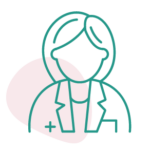
Initial consultation
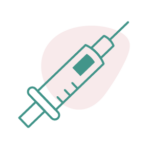
Hormone treatment

Day of insemination
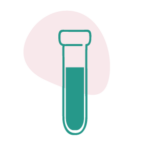
Semen sample collection and processing
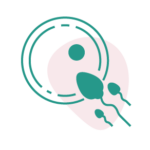
Thawing and preparation of the donor sample
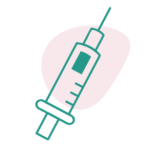
Insemination
Who it is for
Artificial insemination is recommended for:
- Couples in whom the man shows mild to moderate changes in semen quality and/or sperm count.
- Couples in whom the woman has cervical abnormalities which prevent the passage of sperm through the cervical canal.
- Couples with unexplained infertility.
- Couples in whom the male partner has a serious or irreversible sperm abnormality.
- Couples in whom the male partner has a risk of transmitting a disease to his offspring.
- Single women who wish to have a child.
- Women in a homosexual relationship who wish to have a child.
- Couples who do not wish to resort to IVF.
Request an appointment with one of our gynaecologists from the Reproductive Medicine Department who will tell you which treatment is best suited to your situation and to your needs.
Success rates
Cumulative rate IAC/IAD
Why choose us

Comprehensive monitoring with tests
We conduct comprehensive monitoring with tests to determine the exact day of ovulation and thereby ensure that a single insemination per cycle suffices.

Psychological support
We provide psychological support in case of emotional overload, an issue which frequently affects women who undergo assisted reproduction treatments.

Same pregnancy success rates
25% of the couples who go through our Reproductive Medicine Department have a history of treatment failure in other clinics. Even so, we maintain the same pregnancy success rates.

We are pioneers in reproductive medicine
We have more than 80 years’ experience behind us and a team of highly qualified and specialised professionals. The first Spanish test-tube baby was born in our clinic (1984) and Spain’s first egg donation treatment was carried out here, which culminated in the birth of twins (1988).

Facilities and 24-hour emergency service
All consultations and medical tests can be done at the clinic: insemination in consultation without hospitalisation or anaesthesia, oocyte retrieval, own IVF and andrology lab. We also offer a 24-hour medical emergency service.
Testimony
Laura, Manresa (Barcelona)
I got married at the age of 33. I had always thought I would be a mother right away, but I separated a year later, so I couldn’t fulfill that wish. However, I changed jobs and became friends with a colleague who had a beautiful three-year-old daughter. One day when we were talking, she told me that she had decided to become a mother without a partner. So I was thinking about it, and in the end, I decided to go for it! At Dexeus Mujer, which was the center where she had the treatment, they informed me of all the options and, as I had just turned 36 and had no fertility problems, I decided to try artificial insemination, which is a faster process than in vitro fertilization. I was not sure if I was going to make it, and I was prepared in case it was going to take too long, but I was successful on the second try and I have just become a mother. I couldn’t be happier!
More information and prices
Or, if you prefer, fill in this form and we’ll call you
What is the best treatment for me?
If you don’t know which treatment is best suited to you, try our online pre-diagnosis.




